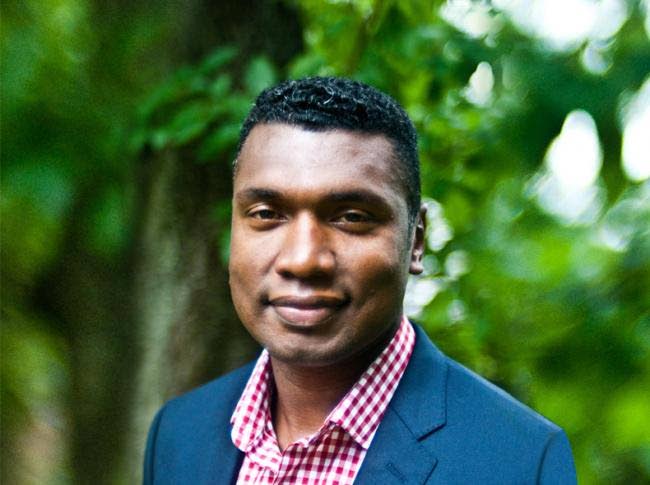Science symposium discusses Caribbean's future

WITH the aim of fostering collaboration and knowledge exchange between the local scientific communities, a groundbreaking symposium discussing the technological and ecological future was hosted by the Caribbean Futures of Science (CFS).
The symposium, held at the Mount Irvine Bay Hotel, took place over four days, beginning on March 8, and delved into a wide array of topics crucial to the region, encompassing theoretical and computational physics, astrophysics, and music technology.
The symposium was spearheaded alongside global stategists Everard Findley, in collaboration with Sound +Science Inc, the University of the West Indies, St Augustine and the Simons Foundations.
Distinguished speakers included 2016 Nobel Prize in Physics recipient Dr Michael Kosterlitz, esteemed astronomer Dr Wanda Diaz-Merced, and Dr Tarun Souradeep, one of the lead authors of the LIGO-India mega science project.
Speaking with the media, organiser Dr Stephon Alexander, a Trinidadian-born physicist known for his groundbreaking research in theoretical and computational physics, said the symposium was about bringing scientists from across the world to connect on a world-class platform.
“The symposium and the future of the symposium is looking at what the future would look like – to really paint a pragmatic, a doable future, and the future is now.”
He added: "It’s a day of talks; we have different talks that covers a wide array of topics, anywhere from climate change in the Caribbean to technology and sound.
"So we had that but we also have these where we discuss a very hard topic: what really is the future of sciences in the Caribbean, how can we work our way around bureaucracy to make that happen; what are the blockages and how do we analyse those blockades together?”
He said there were discussions at the beach, as well as music meditations, noting that the input of youths is also in focus.
“We have a fraction where we looked at the rising stars from the diasporas who are out there, and the message is: as you rise, so shall the others locally rise.
"We had an opportunity for the young people, both in TT and the young people of overseas, to finally break bread so that they could forge a future together as they all rise. They can help each other rise.”
He noted that engagement of stakeholders is important.
“What we want to do is bring science alive with the things that we already do, because there is so many sciences in that. We also want to recognise that our culture is already scientific, we really don’t use that word.”
He added: “To actually have a unique symposium, I would call it callaloo science, which is a kind of science. We don’t have the leisure to be in silos to be in this corner and that corner, so really what the symposium was about was bringing in local scientists, Trinbagonian scientists, to connect on an international platform.”
He said intellectual tourism impacts the minds of every person that is living in a specific place, adding that TT is uniquely positioned to attract travellers from all different backgrounds, to have a symbiotic relationship.
“We have young scientists of Caribbean ancestry now engaging with young scientists from the region and we have set up programming so that the Trinidadian students can fly out now – and so as this continues to go, and the next five years some of these individuals are going to be professors or are going to be in the industry, but we want them to understand they are not alone.”


Comments
"Science symposium discusses Caribbean’s future"